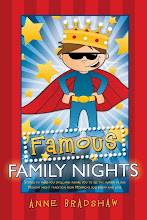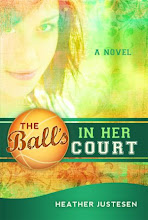On Saturday my youngest woke up with a wheezing sound. It calmed right down when he got up and moved around so I figured it was a cold (we've had at least 500,0000 colds at our house just this year). Later that evening, the wheezing picked up again so we found the vaporizer, loaded it with Vicks, and let him breathe in the medicated air. That didn't settle it and he started struggling more and more to breathe. At that point, I knew it must be croup but I didn't have the ability to treat it.
Realizing the inevitable, my husband and I scooped him up and loaded him into the car to make the 30 mile journey to the hospital. We arrived at the ER and were immediately ushered into a room (a 3-year-old having difficulty breathing gets you into a room quickly). The doctor came in, listened to him, asked us some questions, and diagnosed it as croup. He received a breathing treatment (which he loved--reminded me of the Cheshire Cat) and a steroid shot. After several hours, we were on our way back home with a soundly sleeping child who could breathe easily.
What does this have to do with writing? Everything. We all have experiences that will lend credibility to our stories. None of us live in a vacuum where we do nothing, see no one, and have no experiences. The trick is to use our experiences to our advantage.
I may never use this particular experience in a story, but what I can use are the feelings I had. For example, I've never had a child held hostage. I have, however, felt fear for my child's life. I know what it's like to worry that my child may suffer harm. From my experience Saturday night, I know what it's like to watch my child struggle to breathe and feel like I can't do anything to help him. I knew what he needed, but I couldn't provide it for him because I don't have steroids. So I could apply that fear and feeling of helplessness to my character whose child is being held hostage.
No experience in our lives is wasted. I've actually used real life experiences in my writing. In my novel, Altared Plans, the main character meets her future-mother-in-law while dressed as a clown. Yep, that same thing happened to me. In Heaven Scent the main character can smell her deceased mother's perfume. Again, the same thing has happened to me.
Our experiences shape our writing, which is why we are the only ones who can tell our stories. I've heard it said that if you put ten writers in a room together and give them the same writing prompt, you'll end up with ten completely different stories. Why? Because of our experiences.
So, the next time you're sitting in the ER, waiting in line at the grocery store, or listening to your child explain the world's longest dream, think about how you feel and how it's affected you and then use that in your writing.
Tuesday, December 15, 2009
Write from Experience
Posted by Rebecca Talley at 7:37 AM
Labels: emotional writing, experience, Rebecca Talley, using epxeriences in writing
Subscribe to:
Post Comments (Atom)

















2 comments:
You're so right. I find fodder for stories all around me every day.
My goodness, I just relived your experience (minus the long drive) early this morning. It's scary hearing your child wheeze and bark and hearing that air suck through the tiny passageway and hoping they're getting enough.
I love the lesson you drew from this. Hope he stays well!
Post a Comment